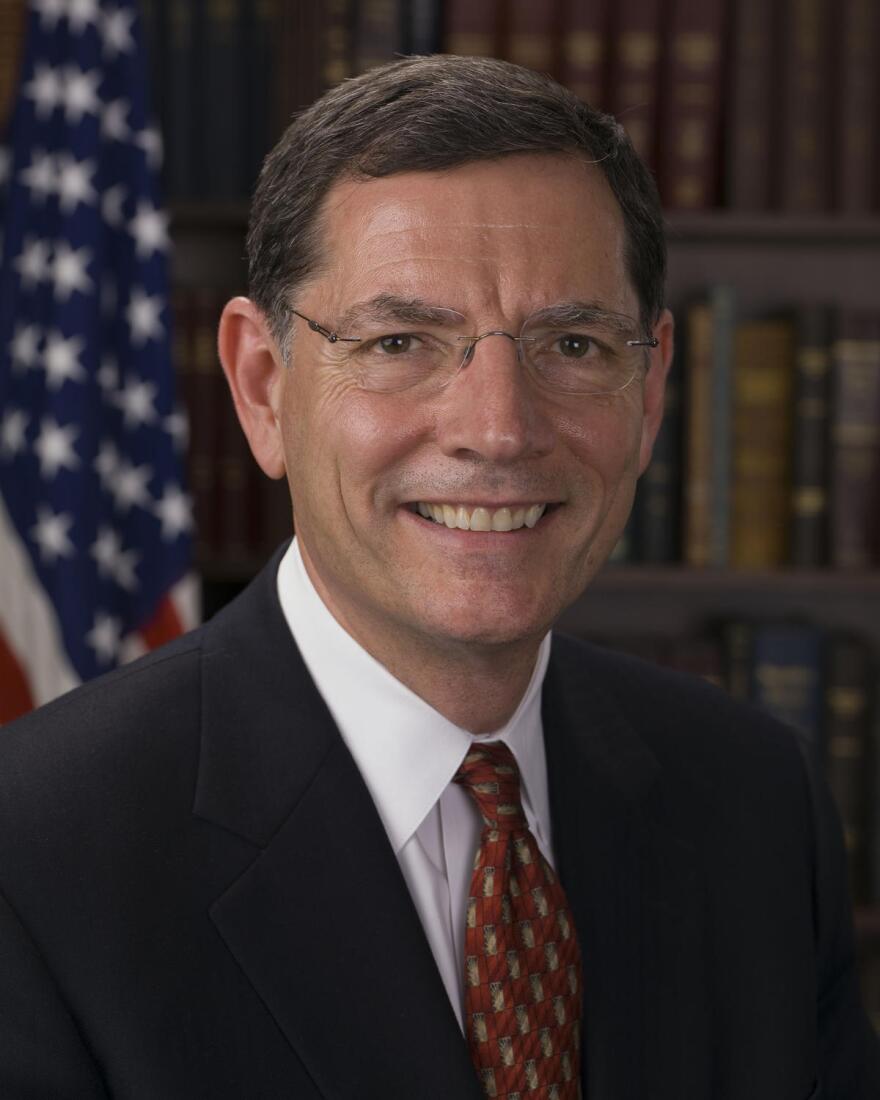Wyoming's senators spent the week fighting a bill that would permanently fund the Land and Water Conservation Fund, along with funding a portion of the maintenance backlog at national parks across the nation.
The Land and Water Conservation Fund was passed more than 50 years ago. It takes offshore oil and gas revenue and invests it in local communities, some of which are spread across Wyoming.
Sen. John Barrasso says it's made an impact at home, including for "…rodeo grounds in Meeteetse, a shooting range in Lusk, some softball and baseball fields. So over the years, it's done a number of very good things for Wyoming. There's a long history of success in the Land and Water Conservation Fund."
But this year the Land and Water Conservation Fund funding effort was combined with a bill aimed at tackling the backlog of maintenance at national parks. The final package, which the Senate's been debating this week, is called the Great American Outdoors Act. And the combination of the two is where Barrasso gets cold feet.
"I'm a supporter of the Land and Water Conservation Fund, but I have a couple of concerns about this Great American Outdoors Act," Barrasso said.
Barrasso is a GOP leader, but even his efforts to amend the bill were rebuffed by Senate Majority Leader Mitch McConnell. A few hours ahead of the vote on Thursday evening Barrasso told us he didn't like it.
"Washington will be given authority to buy more private land in Wyoming and I don't think that's the right approach. We can't afford to maintain the public lands that we have right now. The other concern I have is that it doesn't provide a long-term fix, to address the deferred maintenance backlog that we have in our national parks. And number three, the concern is this is mandatory spending like Medicare or Social Security. And it's permanent," Barrasso said.
But Wyoming's senators are in the minority. Republican Sen. Cory Gardner from neighboring Colorado is pushing the effort. He says setting up a permanent funding mechanism for the Land and Water fund is vital.
"Throughout the past 55 years, though, dollars have been diverted away from The Land and Water Conservation Fund. What this legislation does through its permanent funding is make sure that the dollars that we have authorized beginning in 1965 … make sure that doesn't get diverted. Make sure that it doesn't get siphoned off," Gardner said.
Gardner is up for reelection, though he denies he's pushing this proposal for electoral gain. He says it makes fiscal sense.
"This is this is money that's paid for this is paid for by the taxpayers. This is paid for by oil and gas revenues. These dollars are generated from the revenues that come from offshore. Those energy revenues, a boat excise tax, a boat fuel excise tax, a couple of other things, but it's not coming out of the taxpayers," Gardner said.
Wyoming senior senator Mike Enzi disagrees. He offered an amendment that would require a new fee - or tax - on the more than 14 million foreigners who visit the nations parks annually.
"Foreign visitors to the Taj Mahal in India will pay an $18 fee compared to a fee of only 56 cents for local visitors. At Kruger National Park South Africa, visitors from outside the country will pay $25 per day compared to $6.25 for local visitors. Many European countries like Spain, France and Italy charge a tourist tax on hotel rooms that's used to pay for tourism infrastructure," Enzi said.
Tennessee Republican Sen. Lamar Alexander says after about sixty years of trying it's time for Congress to fully fund the land and water conservation projects.
"This is our one chance to get this kind of funding to make our national parks and all the rest of our public lands, the boat ramps, the trails, the roads, sewage, are one chance to begin to fix the maintenance over a five-year period of time, instead of 10, 15, 25 years or never. It's our one chance to do that. And I'm sure it's our one chance to get the Land and Water Conservation Fund permanently. Permanently funded as Congress agreed to do in 1964," Alexander said.
But Sen. Barrasso brushes aside that perspective - even from a senior member of his own party. He says the legislation enables Washington lawmakers to scoop up more western lands at a time they can't pay for the ones they have.







